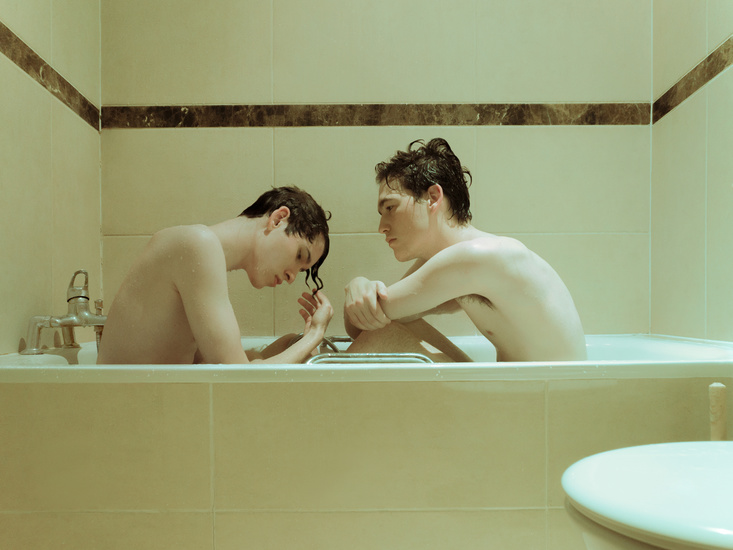Jeff Koons on Art and Self-Acceptance
In the powerful interview series by Jared Leto, Beyond The Horizon, artist Jeff Koons answers the question:
Why Make Art?
“Art is what lets the self find acceptance, to be able to move outward. And automatically as soon as you have self acceptance, it leads you to the acceptance of others.”
The Creative Justice of Ai Weiwei
Ai Weiwei, highly acclaimed political artist, has been on the forefront of many issues pertaining to refugees, political prisoners, and basic human rights.
“This simple form of repression, of using the method of not letting anyone speak, will never succeed.”
It's increasingly important for creative minds to understand the grand responsibility we have to present social issues. Art is a messenger and artists are the foundational leaders in human culture. We each have our personal issues that we tangle with but what is amazing is that one's personal struggle isn't limited to oneself. Other people share in the struggle. Every one of us.
One of the key messages Ai Weiwei presents time and time again is freedom. His work shines light on threats to human rights, victims of injustice and catastrophe, and those jailed or killed for their resolve in freedom.
We all want to be free. For fear to not override our lives. We all want to live to the fullest.
We as artists must understand our expression as a powerful weapon to fight for our liberation and the liberation of others. We can all take a cue from Ai Weiwei, and let our art speak for those who have no voice.
Zodiac Installation by Ai Weiwei in Prague, Czech Republic
Laugh Real Loud. If You Don't You Might Cry: "Bloke Fears" by Actor-Poet Elliot Barnes-Worrell Examines Modern Masculinity
via Nowness.
London Photographer Igor Pjörrt Captures the Intimacy and Loneliness of Youth
via Ben Rhodes (@muchtalk), a 20 year old student and artist based in NYC.
Igor Pjörrt is a 20 year old London based photographer. His art seeks to break the ideal image of youthfulness by capturing moments from his own life. Igor’s photographs lie at the precipice of emotion, self realization, introspection, both positive and negative experiences. He prompts viewer inquiry into themes of loneliness, idealism, and social issues.
I asked Igor a few questions inspired by his Betelgeuse series below:
what is your art?
It’s giving away part of my intimacy to others.
what is your intention with your art?
I want to give particular moments the chance to exist separately from everything else.
what is your dream?
To become one with someone I love.
what are you most afraid of?
Being misunderstood.
where do you get your drive from?
Meeting people and spending time with them.
what is important for people to understand about you / your art?
That we’re in a constant state of flux and that we’re not necessarily one.
what does mindfulness mean to you?
The ability to remain passive and present. A harmony you rarely hear.
what role does stillness play in your life and art?
Like all beautiful things it’s a source of frustration and consequently creativity.
what is a mantra or affirmation you are working on this year?
I’m trying to be more driven and unapologetic. I care too much about offending a hypothetical public who’d probably recklessly condemn me either way. But I also guess that’s one of the things that drive me in the end, to know that what I’m doing can be provocative despite its mundaneness.
'World of Tomorrow' is a fantastic commentary on past, present, and future consciousness
Stumble upon this 16-minute Oscar-nominated short film by Don Hertzfeld entitled World of Tomorrow, which is now streaming on Netflix, and you won't be sorry you did. It's an enchanting sci-fi horror-meets-bedtime story, in fully animated stick-figure glory. A theme that continues to ring in the ears, long after the movie ends:
“We don’t ever fully appreciate the present until it becomes our past”
A more complete synopsis found over at The Atlantic.










